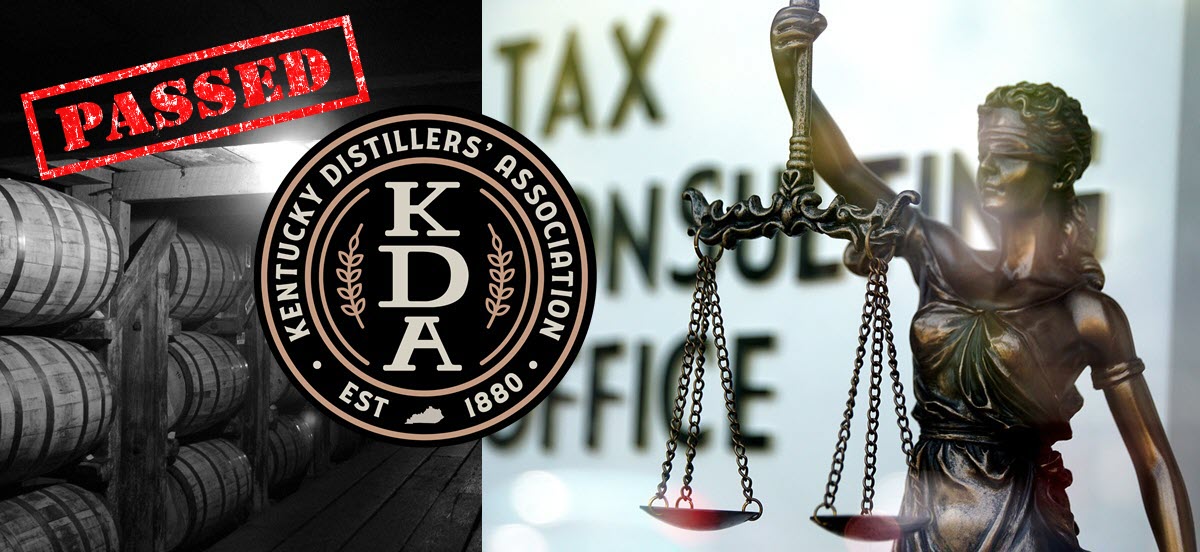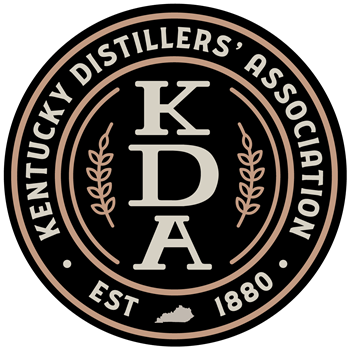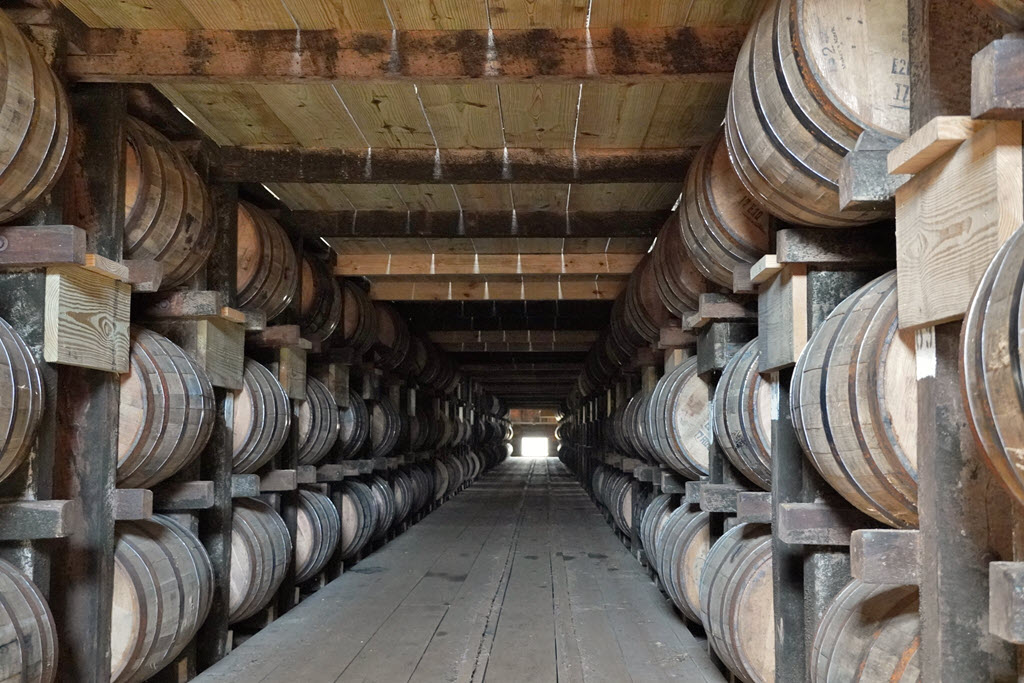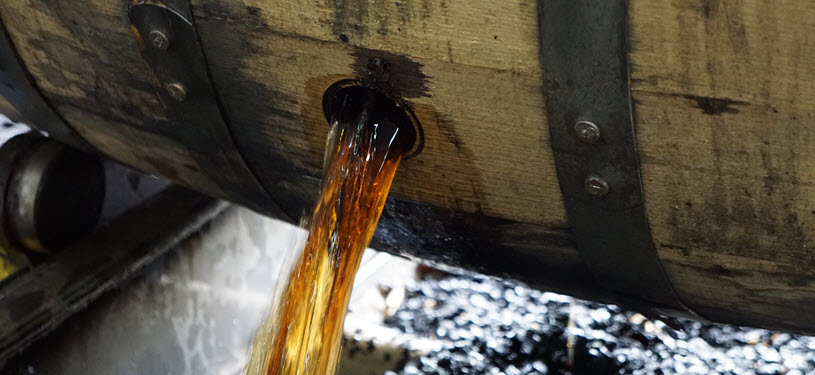
Kentucky, home to 95% of the world’s bourbon inventory, is the only state in the nation that charges a tax on aging bourbon barrels but that is about to change. Kentucky distillers paid a record $33 million in 2021, more than triple the $10.7 million paid in 2009. That $33 million is projected to more than double in the next six to seven years as bourbon barrel inventory is expected to swell as production increases.

The Kentucky Distillers’ Association – KDA representing it’s 52 distilling members, has been working with legislators during the 2023 legislative session to eliminate the discriminatory bourbon barrel tax. The KDA argued that “Bourbon has been blessed with historic growth over the last decade, but Kentucky continues to lose out on the next generation of distillers and those jobs and investments. They are simply not coming to Kentucky, and the bourbon barrel tax is a main reason why.” On a shear numbers basis, Kentucky is 12th in the number of distilled spirits permits in the U.S.
Kentucky’s House passed the bill to eliminate the tax on March 13 followed by the Senate on March 30. The bill has been modified quite a bit along the way to make sure that protections are put in place for public schools and local governments that have come to depend on the tax revenue.
The amended version of House Bill 5 became law when Kentucky Governor Andy Beshear signed it into law on March 31. Under the new law the Kentucky barrel tax will be phased out over a 20-year period beginning in 2023 and ending in 2043 when the tax will be eliminated.
The new law states, “Distilled spirits stored or aging in barrels located in a bonded warehouse or premises shall be exempt from state and local ad valorem taxes for tax assessments made on or after January 1, 2043.”
How Will the Passing of HB 5 Impact Local Tax Revenues?

Legislators and the KDA worked together to come up with a compromise that would try to keep tax rates close to existing levels without doubling or tripling as they were projected to do over the next six to twelve years.
Here is a statement released by the KDA that helps to explain the impact of HB5. There are a number of different tax terms, phrases or acronyms used in the statement. To help put this in perspective, we’ve added definitions for each of the types of taxes further down on the page.
Kentucky Distillers’ Association Statement on House Bill 5
Local Barrel Tax Impact from House Bill 5
Counties will get significant new revenues from barrel taxes and any new Bourbon investments.
HB 5 will limit those new revenues over its 20-year period. However, without HB 5 barrels likely would have been moved to non-taxing jurisdictions outside of Kentucky after the minimum aging period. (See related story where Kentucky distillers moved barrels out of state for aging in the 1960s.)
Here is a basic interpretation of what HB 5 means going forward (we’ve added a definition for each type of tax or related item further down in this article.)
General Summary
- HB 5 does not impact occupational license taxes1. Counties who levy an occupation license tax will continue to receive those taxes on wages paid for construction jobs and any potential other distillery related jobs created in the county.
- The only taxes affected by HB 5 are tangible personal property taxes2. Those property taxes are generally levied by several jurisdictions: the County Fiscal Court, School District, Extension District, Library, Health Department or Fire District.
- Each of those local districts will levy the personal property tax3 rates on Bourbon barrels aging in warehouses beginning in the third year of aging. Note no taxes are levied on the first two years of aging; this was the law prior to the passage of HB 5.
- For barrels stored in warehouses financed by Industrial Revenue Bonds (IRBs)4 issued prior to Jan. 1, 2024, the local personal property tax rates are capped at each district’s 2023 rates and full barrel taxes levied at those rates are paid through 2043. There is no change under HB 5 until 2043 when the ad valorem tax5 on barrels ends.
- If industrial revenue bonds are issued after Jan. 1, 2024, then it would be up to the county and distiller to negotiate any payments in lieu of taxes (PILOTs)6 because the barrels would be taxed as barrels stored in a non-IRB warehouse and the applicable personal property tax rate will be phased out (see next bullet).
- For barrels in non-IRB warehouses, full barrel taxes will be paid on all aging barrels through the 2025 assessment year.
- Beginning in the 2026 assessment year, each of the above-mentioned taxing districts would be collecting taxes on barrels calculations at the following percentage of the applicable personal property tax rates as the tax phases down to zero. For example, in 2026 the distillery will pay 96% of their full barrel tax bill. The rate phase down is as follows:
- 96% of applicable tax rate assessments made on January 1, 2026;
- 92% of applicable tax rate assessments made on January 1, 2027;
- 88% of applicable tax rate assessments made on January 1, 2028;
- 84% of applicable tax rate assessments made on January 1, 2029;
- 80% of applicable tax rate assessments made on January 1, 2030;
- 76% of applicable tax rate assessments made on January 1, 2031;
- 72% of applicable tax rate assessments made on January 1, 2032;
- 68% of applicable tax rate assessments made on January 1, 2033;
- 61% of applicable tax rate assessments made on January 1, 2034;
- 54% of applicable tax rate assessments made on January 1, 2035;
- 44% of applicable tax rate assessments made on January 1, 2036;
- 38% of applicable tax rate assessments made on January 1, 2037;
- 32% of applicable tax rate assessments made on January 1, 2038;
- 24% of applicable tax rate assessments made on January 1, 2039;
- 20% of applicable tax rate assessments made on January 1, 2040;
- 15% of applicable tax rate assessments made on January 1, 2041; and
- 8% of applicable tax rate assessments made on January 1, 2042.
- Distilled spirits stored or aging in barrels located in a bonded warehouse or premises shall be exempt from state and local ad valorem taxes for tax assessments made on or after January 1, 2043.
- Beginning in the 2026 assessment year, each of the above-mentioned taxing districts would be collecting taxes on barrels calculations at the following percentage of the applicable personal property tax rates as the tax phases down to zero. For example, in 2026 the distillery will pay 96% of their full barrel tax bill. The rate phase down is as follows:
- Based on projected statewide growth in the industry, the industry estimates an increase in barrel tax revenues through 2035 before those revenues begin to decline.
Schools
- Public schools receive the bulk of the barrel taxes through the school district levy of a tangible personal property tax.
- Schools are held “whole” under HB 5 and the legislation was designed so school funding does not drop due to the phase out of the barrel taxes.
- The state’s school funding formula, known as the SEEK formula7, will backfill the loss of about 75 percent of the school funding.
- HB 5 requires distillers to pay that remaining gap in school funding levels through a new excise tax8. The amount of tax for years to come is based on the 2023 school funding levels.
Fire & EMS
- Fire and EMS are held “whole” under HB 5 and the legislation was designed so their funding does not drop due to the phase out of the barrel taxes.
- HB 5 sets the base revenue for fire and EMS at 2025 revenues and requires distillers to pay that remaining gap in funding levels through a new excise tax.

Stay Informed: Sign up here for the Distillery Trail free email newsletter and be the first to get all the latest news, trends, job listings and events in your inbox.
The Kentucky Association of Manufacturers put out the following statement after the Governor signed the bill.
“Kentucky’s manufacturers applaud the General Assembly for approving, and Governor Beshear for signing into law, a tax fairness bill for Kentucky distillers that will eventually eliminate the barrel tax on Bourbon and other distilled spirits produced here.
“The legislation, House Bill 5, will phase out an antiquated tax that has been in place for generations. Equally important, HB 5 gives significant consideration to the impacts that the barrel tax phase-out will have on local governments and communities.
“This kind of long-term economic development policymaking is the right thing to do for Kentucky’s competitiveness. It will protect and grow jobs in our original signature industry and the many sectors that depend on Bourbon.”
The Bluegrass Institute for Public Policy Solutions (BIPPS) shared the following statement.
“The House concurred with a Senate committee substitute containing reasonable compromises, ensuring, for example, that gaps in funding for firefighters and schools in districts dependent on revenue raised by the tax will be filled. It also requires distillers to continue paying the tax on barrels housed in warehouses built using industrial revenue bonds.”
Definitions for the Various Taxes Related to HB5
1. What is an “Occupational License Tax”? (Back to top)
Every employer (whether for profit or not for profit) who pays wages, salaries, commissions, tips, or other taxable compensation to an employee for work performed within the city limits is required to withhold and remit to the city payroll tax. The tax is a percentage of the gross compensation paid. Source: City of Henderson, Kentucky
2. What is a “Tangible Personal Property Taxes”? (Back to top)
Tangible personal property is physical property, usually movable, that has value and utility in and of itself (examples: trade tools, fixtures, office equipment, inventory). In determining whether an item is real property or tangible personal property, the following aspects must be considered:
- The manner in which the item is fixed or attached to the real estate.
- The intention of the party who attached the item.
- The purpose for which the premises are used.
Source: Warren County, Kentucky
3. What Is “Personal Property Tax”? (Back to top)
Personal property tax is a tax imposed by state or local governments on certain assets that can be touched and moved, such as cars, livestock, or equipment. Generally, personal property means assets other than land or permanent structures, such as houses, which are considered real property. Source: Investopedia.
4. What are “Industrial Revenue Bonds (IRBs)” (Back to top)
Industrial revenue bonds (IRB) are municipal debt securities issued by a government agency on behalf of a private sector company and intended to build or acquire factories or other heavy equipment and tools. IRBs were formerly called Industrial Development Bonds (IDB). Source: Investopedia.
5. What Is an “Ad Valorem Tax”? (Back to top)
An ad valorem tax is a tax based on the assessed value of an item, such as real estate or personal property. The most common ad valorem taxes are property taxes levied on real estate. However, ad valorem taxes may also extend to a number of tax applications, such as import duty taxes on goods from abroad. The Latin phrase ad valorem means “according to value.” Source: Investopedia.
6. What is “Payment in Lieu of Taxes (PILOTs or sometimes PILT)” (Back to top)
Payment in lieu of taxes is a payment made to compensate a government for some or all of the property tax revenue lost due to tax exempt ownership or use of real property. Source: Wikipedia.
7. What is “Support Education Excellence in Kentucky or SEEK Formula? (Back to top)
The Support Education Excellence in Kentucky (SEEK) funding program is a formula driven allocation of state provided funds to local school districts. The formula includes funding for transportation costs and special needs students as reported by districts. Source: Kentucky Department of Education
8. What is an “Excise Tax”? (Back to top)
An excise tax is a tax imposed on a specific good or activity. Excise taxes are commonly levied on cigarettes, alcoholic beverages, soda, gasoline, insurance premiums, amusement activities, and betting, and typically make up a relatively small and volatile portion of state and local and, to a lesser extent, federal tax collections. Source: Tax Foundation
An excise tax is a legislated tax on specific goods or services at the time they are purchased. Goods subject to excise taxes could be fuel, tobacco, and alcohol, among others. Source: Investopedia.
Please help to support Distillery Trail. Sign up for our Newsletter, like us on Facebook and follow us on Instagram and Twitter.




